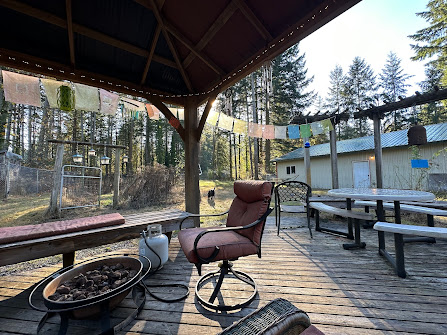A Voice from the Attic
As I remember, this was the title of a book, a series of short essays on reading from a Canadian writer named Robertson Davies. When I was and a tiny little nurse, hey ho, the wind and the rain... As a young nurse in KC, I took care of a gentleman who, by all appearances, was a normal person and a citizen of the United States (of America) with something less than life-threatening, admitted to the giant large Medical Institution in which I took my Med-Surg training.
This was in 1975 and everything was much different from what we walk through today. He was friendly and I was friendly and in the course of conversations, he told me about a book he was reading. How it was good and interesting and enlightening and enriching and, its name was A Voice from the Attic. I said something pithy and fitting to the seriousness of my new calling, in which everything related to my important studies. Something like, "Is it about schizophrenia?" and he said something like, "No, it's a series of works from a Canadian writer. You know how people refer to Canada as America's Attic?"
I don't remember now whether or not I admitted never having heard of such a thing as that. In retrospect, I probably never heard Canada referred to, at all, in my upbringing. Thinking about that, I imagine I had heard that Lorne Greene, the actor playing the father, Ben Cartwright, on the long-running and revered TV show Bonanza, was, in fact, a Canadian (what we could now call a Crypto-Canadian). To which everyone hearing this would stroke their chin and nod while looking down in worldly contemplation. "Hmm," they would think quietly, "it sure doesn't show. I must be more attentive and on guard in the future."
Once in a while, I suppose, one of the other people in the conversation would name another Canadian who was passing as American. But any more information than that of Lorne Greene's true origin would be swept aside. The point had been made. If Lorne Greene could not only pass as an American but pretty much define the ideal American, what else might be true. Beside Lorne Greene, Charleton Heston looked like the class clown, in a French village.
We Americans tend to think we know, really know, an actor by the roles that he plays and everybody liked and respected Ben Cartwright. His word was good in Virginia City and, by God, it was good in most living rooms in the United States of America. Lorne Greene seemed to carry those admirable character traits with him where he went. He was the older generation in America, just when America was "Going to Hell, with hippies and drugs and Viet Nam and free love and long hair and Rock-n-Roll and whatever.
Lorne Greene was everything that was good and sacred about America. Hell, he'd even issued a spoken-word album of inspirational pieces set to music. Things like "The Lord's Prayer" and well, that pretty much defines the genre, right there. He had a rich, baritone voice and pronounced his words clearly and without any discernible regional accent. He had a serious, moderately handsome, heavily lined face, biblical eyebrows and he carried himself with great Gravitas, and if you don't know what that word means, it means, like Lorne Greene.
Now imagine believing all of that to be true and then finding out that he was Canadian. Well, it just sort of knocked the spokes right out of the wheel and extended the Libert Bell's crack. It was up there with admitting that Jesus was not only, probably not American but even if he had spoken English he would do so with an accent. I mean there are still people who thought he was crucified at Valley Forge with Washington's men.
So I personally had nothing against Canada or Canadians, any more than I had anything against, well Pakistanis or Venusians. I didn't know any of them. There were lumped in with all of the rest of the world outside my school district, exotic, foreign, inscrutable, strange habits and foods. You know, foreigners.
So then my patient tells me he's from Canada and I admit, I felt a mixture of surprise and a little discomfort. I felt like going out of my way to be nice to him and reassure him that, in my eyes, he was still OK and worthy of America's most overblown approach to healthcare. It was a year for a lot of firsts in my life, and I tried to handle them all the same way. I would kind of wink at somebody to say, "It's OK. I'm pretty fucked up as well. We'll just work it out as we go."
I'm sure that this was a great comfort to someone from Canada, that I, for one, was willing to look past the major defect of them not being American (which they actually still were) and treat them as a soul with average human worth.
My own outlook changed slowly over the time I spent among the humans until I could pass among them without causing too much disturbance, and I even took comfort in the realization that just about everyone I met occupied a way different world than myself or anyone else they might meet.
I've visited and revisited the same discoveries about the variations in worlds my whole life. It's still not a lesson I've fully integrated, and I still have to remind myself not to compare conditions on anyone else's planet to mine. There are only two ways the comparison ends and neither are good. I must be content to look through the telescope at the other worlds around me every day and remind myself that there's no place like home. Really, no place.
* * *
Originally Published on Rising-Gorge on 6/15/2016



Comments
Post a Comment